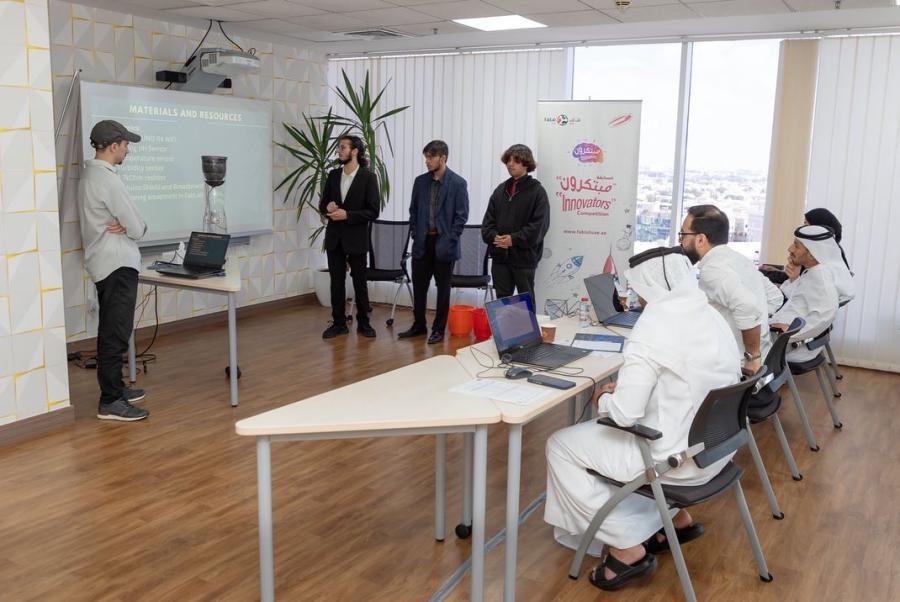- About
- Admissions
- Study at AUS
- Prospective Students
- Bachelor's Degrees
- Master's Degrees
- Doctoral Degrees
- Admission Publications
- International Students
- Contact Admissions
- Grants and Scholarships
- Sponsorship Liaison Services
- Testing Center
- New Student Guide
- File Completion
- New Student Orientation
- Payment Guide
- Executive Education
- Students with Disabilities
- Academics
- Life at AUS
- Research
- Contact Us
- Apply Now
- .

Smart solutions for cleaner waters: AUS student team wins FabLab Innovators Competition
An American University of Sharjah (AUS) student team developed a solar-powered cloud-based water monitoring system to assess pollution in bodies of water, winning the FabLab Innovators Competition, a Hamdan bin Rashid Al Maktoum Foundation for Medical and Educational Sciences initiative.
“We were given two weeks to submit a plan and present it to the judges about a sustainability-related issue we wanted to address and a month to complete the project. We worked on a water monitoring device that can be deployed in natural bodies of water to save marine life. The device is equipped with sensors capable of measuring water temperature, pH and turbidity levels. These readings will be used to assess the pollution level of the water. The results, along with the sensor readings, will be displayed to the user through a dedicated application,” said Zain Kamal Raisan, a computer science and engineering student.
Winning AED 20,000, the team comprised Raisan, who worked on programming the user interface application; computer engineering and mathematics double major Mohammed Baraa Adnan, who worked on programming the microcontroller and sensors, interfacing the electronics and ensuring the proper working of the sensors; computer engineering student Farzaan Siddiqui, who wrote the electronic components and coding for the calibration of the sensors; and biology major Jamal Beshr, who worked on the device's physical design and casing by using 3D printers, waterproofing the device, and protecting its components.
“The next stage for this project involves exploring and implementing machine learning techniques to measure and establish standardized parameters for the distinctive marine environments present in the Gulf region. Specifically, deploying a cost-effective technological monitoring approach to help preserve the microhabitats various species live in. Environmental monitoring is becoming more important, especially for the conservation of microorganisms. One good example is the Pink Lake in Ras Al Khaimah, which has a unique high-salinity habitat, with a strain of red algae. Smart water monitoring can help preserve species, like the red algae,” said Beshr.
Adnan spoke about how the AUS educational journey helped the team in working on the project and its multifaceted components.
“Key skills from courses such as Embedded Systems Design and Applications helped us design, code and interface all the sensors to the microcontroller in this project. The course on Graphical User Interface Programming was useful in how we designed sharing information in the form of a GUI application rather than in the text-based CLI for this project. Working in teams on projects is also something we are very familiar with as AUS students. We also had some inspiration from biology classes such as Marine Environments and Ecology, which offered insights into methods for quantifying biodiversity as well as the intricate structures of communities,” said Adnan.
CEN fosters a dynamic learning environment for aspiring engineers, equips students with the skills and knowledge to thrive in the ever-evolving landscape of engineering and technology. To learn more about CEN, visit www.aus.edu/cen.

